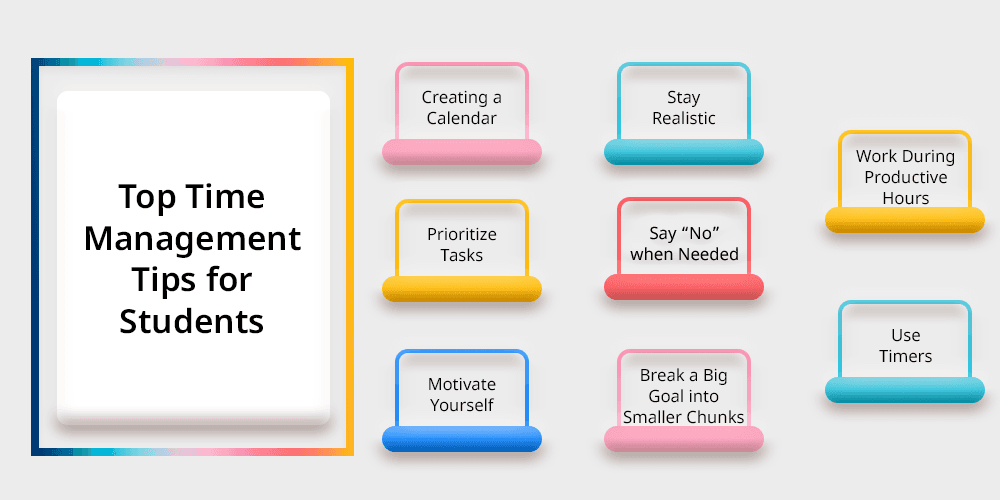

Managing time effectively is crucial for academic success and maintaining a balanced student life. Between classes, assignments, extracurricular activities, and personal commitments, students often struggle to find the right balance. Let’s learn more about this topic below with Snake Game.
Effective time management is the cornerstone of academic success and personal well-being. Students who master this skill often experience reduced stress levels, improved academic performance, and a better work-life balance. The ability to manage time efficiently helps develop crucial life skills that extend beyond the classroom into future professional careers.
Research shows that students who implement proper time management techniques are 40% more likely to achieve their academic goals and maintain better mental health throughout their educational journey. This skill becomes increasingly important as academic responsibilities grow more complex and demanding.
Read more: How Successful People Manage Their Time
Establishing a consistent daily routine helps create a framework for productive studying and personal activities. Start by identifying your peak productivity hours – the times when you feel most alert and focused. Some students work best early in the morning, while others find their groove in the evening hours. Understanding your natural rhythm is crucial for maximizing productivity.
Dedicate specific time blocks for different activities, including study sessions, breaks, exercise, and social interactions. A well-structured routine should include buffer time for unexpected events or tasks that might take longer than anticipated. This flexibility helps prevent stress when things don’t go exactly as planned.
The Pomodoro Technique is a time management method that has proven particularly effective for students. This technique involves working for 25 minutes followed by a 5-minute break. After completing four “pomodoros,” take a longer break of 15-30 minutes. This approach helps maintain focus while preventing mental fatigue.
During each Pomodoro session, focus exclusively on one task without any distractions. This means putting away your phone, closing unnecessary browser tabs, and creating a dedicated study environment. The short breaks help refresh your mind and maintain sustained productivity throughout longer study sessions.
SMART goals (Specific, Measurable, Achievable, Relevant, and Time-bound) provide a framework for effective time management. Instead of setting vague goals like “study more,” create specific objectives such as “complete three chapters of biology textbook by Wednesday evening.” This clarity helps in better planning and execution of tasks.
Break down larger projects into smaller, manageable tasks. This approach prevents overwhelming feelings and makes progress more visible. Keep track of completed tasks to maintain motivation and adjust your schedule as needed based on your progress and changing priorities.
Use the Eisenhower Matrix to categorize tasks based on their urgency and importance. This tool helps distinguish between tasks that need immediate attention and those that can be scheduled for later. Important and urgent tasks should take priority, while less critical tasks can be delegated or eliminated.
Maintain a master task list and review it regularly to ensure nothing falls through the cracks. Update this list daily and adjust priorities as new assignments or deadlines arise. This dynamic approach to task management helps maintain control over your workload.
Take advantage of digital tools designed to enhance time management. Calendar apps, task management software, and study timer applications can help streamline your schedule and keep you accountable. Many of these tools offer features like reminders, progress tracking, and synchronization across devices.
Consider using apps that block distracting websites during study sessions or track how you spend your time online. This awareness can help identify and eliminate time-wasting activities, leading to more productive study sessions.
Address procrastination by understanding its root causes. Often, procrastination stems from perfectionism, fear of failure, or feeling overwhelmed. Break down challenging tasks into smaller, more manageable steps to make them less daunting. Start with the most difficult task when your energy levels are highest.
Create accountability systems by sharing your goals with study partners or using apps that track your progress. Remember that perfect is the enemy of good – focus on making progress rather than achieving perfection in every task.
Maintain a healthy balance between academic responsibilities and personal life. Schedule regular breaks and leisure activities to prevent burnout. Remember that effective time management isn’t about working constantly – it’s about working smartly and maintaining sustainable study habits.
Include time for physical exercise, social activities, and hobbies in your schedule. These activities are crucial for maintaining mental health and overall well-being, which in turn supports better academic performance.
Read more: Morning Routines That Help You Stay on Track All Day
Design study spaces that minimize distractions and maximize focus. This might mean finding a quiet corner in the library, setting up a dedicated desk at home, or identifying specific times when shared spaces are quietest. Your study environment significantly impacts your ability to manage time effectively.
Prepare your study space with all necessary materials before beginning work to avoid interruptions. Consider factors like lighting, temperature, and noise levels when choosing or setting up your study environment.
Look beyond daily and weekly planning to develop a broader perspective of your academic journey. Create semester-long calendars marking important dates, exams, and project deadlines. This overview helps in distributing workload more evenly and avoiding last-minute cramming.
Regular review and adjustment of long-term plans ensure they remain relevant and achievable. This practice develops strategic thinking skills valuable for academic and professional success.
Effective time management is a skill that develops with practice and patience. Start implementing these strategies gradually, and don’t get discouraged if you don’t master them immediately. Remember that small, consistent improvements in how you manage your time can lead to significant positive changes in your academic performance and overall quality of life. The key is to find a system that works for you and stick to it while remaining flexible enough to adapt when necessary.